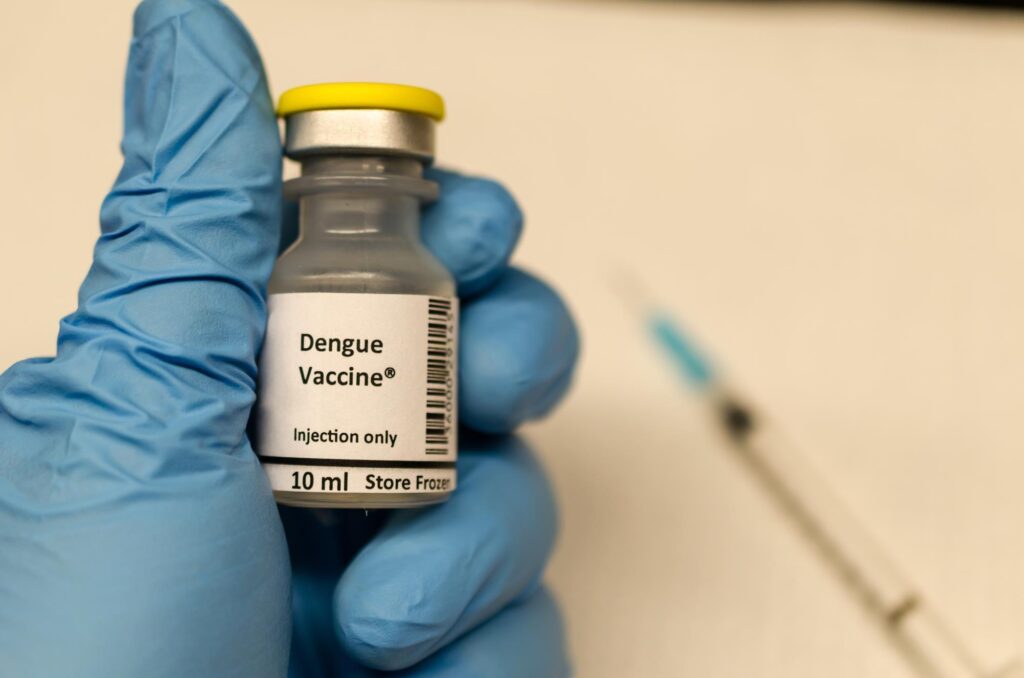In a significant progress in the battle against dengue fever, Takeda Pharmaceutical Company has announced plans to introduce its dengue vaccine in Japan, coinciding with a surge in travel to Southeast Asia. As the region experiences a marked increase in tourism, concerns over mosquito-borne illnesses have heightened, prompting a renewed focus on preventive measures. The vaccine, designed to protect against the dengue virus that affects millions annually, could play a crucial role in safeguarding travelers and locals alike. This move not only signifies a breakthrough in dengue prevention but also underscores the growing importance of public health initiatives as global travel resumes. As Japan braces for an influx of visitors, the potential impact of Takeda’s vaccine on both health outcomes and travel safety remains to be seen.
Dengue Vaccine Launch by Takeda Aimed at Safeguarding Travelers in Japan
The recent launch of a dengue vaccine by Takeda Pharmaceuticals is set to enhance travel safety for japanese tourists heading to Southeast Asia, a region witnessing a significant uptick in travel activity. This initiative addresses the pressing public health concern posed by dengue fever, transmitted by Aedes mosquitoes, which can lead to severe health complications. With dengue cases rising globally, the availability of this vaccine provides travelers with a crucial line of defense against this mosquito-borne illness. Vaccination is especially recommended for those planning to visit areas where dengue is endemic.
Takeda’s vaccine, which has undergone rigorous clinical trials, marks a significant milestone in preventive healthcare. Vaccination will be offered through various healthcare channels, aiming to reach a wide audience. Key data about the vaccine includes:
- Administration: A two-dose regimen, spaced about three months apart.
- Effectiveness: Proven efficacy in reducing dengue fever risk among vaccinated individuals.
- Target Population: Primarily travelers to high-risk regions and residents in affected areas.
| Region | Dengue Incidence Rate |
|---|---|
| Thailand | 50.4 per 100,000 |
| Philippines | 50.2 per 100,000 |
| Vietnam | 34.7 per 100,000 |
Increased Travel to Southeast Asia Drives Demand for protective Healthcare Solutions
The rise in tourism across Southeast Asia has spurred an urgent need for comprehensive healthcare solutions, particularly as travelers face increased exposure to vector-borne diseases like dengue fever. As a response, healthcare providers and pharmaceutical companies are gearing up to meet the growing demand for protective vaccinations. Travelers are now more aware than ever of the risks associated with dengue fever, prompting an influx of inquiries and bookings for vaccinations before embarking on their trips. This shift in traveler behaviour underscores the importance of preventive measures and the role of vaccinations in ensuring safe travel experiences.
In light of the increased demand, Takeda’s dengue vaccine is set to play a pivotal role in the market, especially with its anticipated launch in Japan. Not only will it bolster individual health during travel, but it also reflects a wider trend in healthcare innovation adapting to shifts in global mobility. Key factors influencing this demand include:
- Growing Travel Frequencies: Southeast Asia remains a popular destination for both leisure and business travelers.
- Rising Awareness: Education about dengue virus transmission is leading to proactive health measures.
- Government Initiatives: Countries are increasingly promoting travel health advisories that highlight vaccination importance.
Experts Advise on Vaccination as Key Measure Against Rising Dengue Risks
As travel to Southeast Asia increases, concerns about dengue fever have also risen, leading health experts to emphasize the critical role of vaccination in mitigating risks associated with the disease. The newly approved dengue vaccine developed by Takeda promises to be a significant addition to public health strategies in Japan and beyond. Experts highlight that vaccination can serve as a frontline defense against the virus, particularly for travelers visiting endemic regions. Key benefits of vaccination include:
- Reduced incidence of severe dengue symptoms
- Protection for at-risk populations, such as children and the elderly
- A reduced burden on healthcare systems during seasonal outbreaks
Considering the rising incidences of dengue, the vaccine is expected to play an essential role in comprehensive prevention strategies. Officials recommend that individuals planning to travel to areas with reported dengue cases consult healthcare providers about vaccination options.Data suggests that vaccination not only bolsters individual immunity but may also contribute to broader community health defense by lowering the overall transmission rates. The table below illustrates recent cases of dengue in select countries, underscoring the importance of vaccination as a proactive measure:
| Country | Reported Cases (2023) | Vaccination Coverage (%) |
|---|---|---|
| Thailand | 25,000 | 30 |
| Philippines | 18,500 | 25 |
| Vietnam | 15,800 | 20 |
the Conclusion
Takeda’s dengue vaccine marks a significant advancement in the fight against this increasingly prevalent disease, particularly in light of rising travel and tourism in Southeast Asia. With Japan’s approval for sale, the vaccine not only promises to enhance public health initiatives domestically but also serves as a vital tool for travelers venturing into dengue-prone regions. As vaccination efforts ramp up, the potential for reduced infection rates and improved health outcomes highlights the critical need for continued investment in vaccine research and public health strategies. As Southeast Asia anticipates a robust recovery in tourism, the availability of effective preventative measures like Takeda’s vaccine will be essential in safeguarding both travelers and local communities alike.
